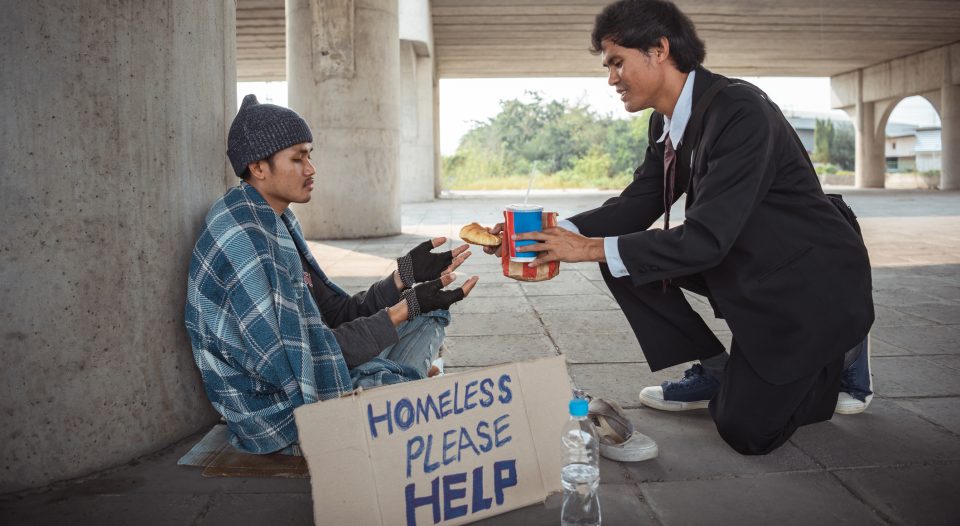Lectionary for Sept. 11, 2022
14th Sunday after Pentecost
Exodus 32:7-14; Psalm 51:1-10;
1 Timothy 1:12-17; Luke 15:1-10
Once again, in this time after Pentecost, the lectionary passages build upon the previous week. Last week, Jesus warned the crowds following him about the steep costs of discipleship that they had to be prepared to pay. This week, we read about the discomfort that God is willing to allow into the lives of steadfast followers in order to rescue those at the margins or who have been lost.
The framing for this week’s Gospel reading is about how Jesus mixed with two groups that didn’t get along. Jesus, as a Pharisee himself, ate with other Pharisees, talked with them and generally had intra-Pharisaic debates. One of the Pharisees’ defining characteristics was that they didn’t eat with folks who were ritually impure—this is where their name comes from (parusim, “the ones who separate”). So the Pharisees, who very much wanted to keep talking with Jesus at dinner parties, complained that he was potentially adding the contagion of ritual impurity to their meals by eating with tax collectors and sinners. In effect, Jesus was making them very uncomfortable and potentially exposing them to danger. It’s in this light that we must read the parables that Jesus tells the Pharisees.
Usually when we read the parable of the sheep or the coin, we focus on the experience of the one sheep or the one coin who is delighted to be found. But I think Jesus, at least in the original context, was telling the story to folks who felt like the 99 sheep and the nine coins.
Jesus was explicitly telling the Pharisees and scribes that outreach efforts to find those who have been lost or cast aside are more important than in-reach efforts.
Jesus emphasizes that standard practice is for shepherds to leave the 99 sheep in the wilderness to go look for the one lost sheep until it is found. The shepherd delights in the one lost sheep more than the 99 who stayed in the wilderness without anyone to protect them. In the same way, a woman doesn’t content herself with her nine other drachma coins but expends energy to go find the lost coin. Moreover, when she finds the lost coin, she calls together her neighbors to rejoice. No mere “Yay!” and high-five is in view here. She throws a party, uses some of her coins to buy food and rejoices, along with her neighbors, over the coin that was once lost but now is found.
Jesus was explicitly telling the Pharisees and scribes that outreach efforts to find those who have been lost or cast aside are more important than in-reach efforts to take care of folks who are already part of the Holy Community.
Does Jesus’ priority here make you uncomfortable? If I’m honest, it does for me. I don’t like the notion of some people being more valuable to heaven than others. And yet, here it is. Now, we must note that Jesus doesn’t break fellowship with the Pharisees. Indeed, many of his followers—Nicodemus, Paul and all of the disciples who joined Jesus at the dinner parties—were Pharisees. The kingdom of heaven is not an either/or proposition. But Jesus is explicit on priorities. And God is OK if that makes some folks uncomfortable.
And speaking of God being OK with discomfort, I can’t pass up one of my favorite passages from Exodus. In light of the golden calf episode, Moses is told to leave God alone so God can destroy the Israelites and start over with him (32:9-10). Moses prays for the people and argues that the Egyptians would mock God for killing the people instead of saving them (12).
And then the Bible says an extraordinary thing: the Lord repents from the evil that God said he would do to God’s people (14; see also Numbers 14:13-20). Do we have space in our theologies for the two times that the Scripture says God repents of something that God had done (Genesis 6:6-7, 1 Samuel 15:11), and the 11 times that God repents of something that God was about to do? There’s a bit of nuance in the text, to be sure. The wicked, unseeing-seer, Balaam, says God doesn’t repent (Numbers 23:19. Samuel says the same thing (1 Samuel 15:29)—only 18 verses after telling us that God repented! Insofar as we believe Scripture is inspired by the Spirit, God is telling us repeatedly that repentance is part of the divine prerogative. Does that make us uncomfortable? If so, good! God invites us into discomfort. Submitting our theologies to the witness of Scripture is a Lutheran tradition, after all.
When Jesus spoke to large crowds or his usual dinner party colleagues, he didn’t promise an easy path that made logical sense immediately or wouldn’t challenge assumptions. On the contrary, Jesus warned of difficulties and hardships that would make people question their priorities and values. Jesus has always called those who would follow him into discomfort. May we be blessed to lean into difficult discipleship.






